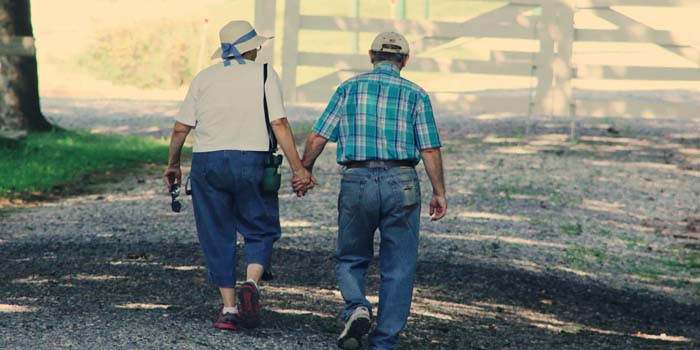Most older adults do not really need much help from other people. In fact, they may be busy helping other people and contributing to their families, workplaces, and communities. However, there are many older people who will eventually need help from others, particularly when they reach their 80s, 90s and beyond. There are actually a few people who reach old age and never need any assistance.
There are times when providing support will be simple. Helping with transportation or getting help with shopping and household chores are the most common. However, there are other times when family members have to take on quite a lot to help. This will often be linked to health issues that affect the older person’s ability to lead an independent life. Some of the most common situations that bring this include:
- The initial development of cognitive disorders such as dementia and Alzheimer’s.
- Advanced chronic illnesses that will limit the older person’s daily function or increase hospitalization such as progressive neurological conditions and advanced chronic pulmonary disease.
- Sudden disability following a medical emergency, stroke or fall.
- Difficulty recovering from hospitalization which is more frequent if the person suffers from complications and delirium.
- Advanced age can also bring on general fragility and the overall loss of physical strength. Cognitive changes can also come with advanced age and there is an increased risk of developing dementia.
- Most people are happy to help an older loved one in need.
There are a lot of different issues that are brought up by trying to help an older parent who may not have been addressed in the past. Most people will also need to continue their jobs, caring for their children and keep up with their other responsibilities. This is why you need to know about the 9 common issues that often come up when helping an older parent.
Helping With Activities Of Daily Living And Instrumental Activities Of Daily Living
Instrumental activities of daily living or IADLs are the activities that older people will need help with first. This will include managing transportation, home health care maintenance, meal preparation, shopping and managing their finances. Their needs for assistance in these activities will vary depending on the person, the care arrangement and the housing arrangements.
Safety Issues
This will include a range of issues such as the older person’s financial vulnerability. Driving concerns and falls will also be part of these issues.
Health And Medical Issues

In later life, medical concerns are more common. There are many older people who have chronic conditions that require medication, monitoring and other forms of ongoing management. It is also possible for older people to develop new health concerns and symptoms which need to be evaluated. Family members can often be helpful during medical visits as they help bring up concerns and questions.
Most people will need some help when they recover from an illness. Older people could lose their ability to make healthy decisions and oversee their own medical care after a serious illness or when they have a chronic condition. Family members will often need to make these decisions for them.
Legal And Financial Issues
There are some older people who lose the ability to manage financial and legal affairs. It is possible that even cognitively-intact older people will need assistance with these issues. Helping with this can be easier if you take the time to plan ahead and complete all the necessary legal paperwork which will make it easier for family members to help.
House Issues
The housing situation that an older person finds themselves in will play a role in their quality of life. Their safety and the ability of other people to provide assistance will also be affected. There are certain questions that families will need to consider regarding this including:
- If the person’s current housing situation fit for aging in place?
- Is there a more supportive environment available or necessary such as moving in with a family member?
Helping With Quality Of Life
Looking past the basic needs that people have, there are many families that worry about the quality of life that older relatives have. This includes issues such as social connections, autonomy, purpose, and dignity. It is essential that more is learned about what matters most to the individual and what they consider to be less important or what they are willing to trade off.
Planning Ahead

There are many things that you need to plan for including future declines in health, emergencies, and end of life care. While planning ahead can be distressing in these cases, it can reduce stress and expenses later on.
Managing Relationships And Family Dynamics
Helping an older parent can often bring difficult emotions and challenges in relationships. Many well-intentioned people will treat older relatives in a way that undermines their autonomy or dignity and can strain their relationship with them. It is common for family caregivers to suffer relationship problems with their siblings and others who are involved. Fortunately, most people will benefit from practicing better communication and learning to better manage their relationship dynamics.
Self-Care
Helping your older parent can be rewarding, but it can easily become a source of chronic stress. This is due to the fact that family caregivers are busy and they will often neglect their own wellbeing and needs. This can cause problems for their health and affect their ability to care for their loved ones.
There are a variety of strategies that family caregivers can use to manage the strain they are under. These strategies will include joining a help group and asking for help. Setting boundaries is also important as is allowing time to tend to your own needs and health.
An example of the strain that can be placed on family caregivers is when an older parent’s medical situation means they cannot manage their own needs. An intense medical situation will increase the amount of time they and their caregivers need to spend with medical professionals. This will have an impact on the quality of life of everyone.
The effect on relationship dynamics can also affect the stress a caregiver feels. In turn, this will affect their ability to help their parents as well as the energy and patience they have when communicating with them.



